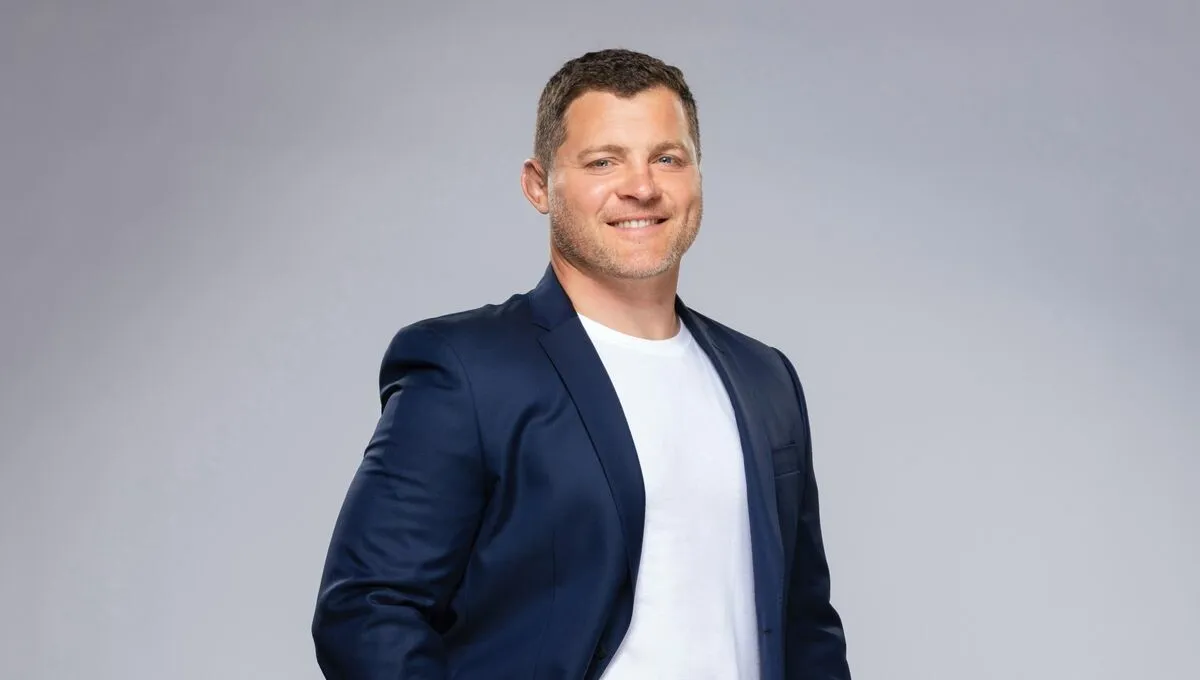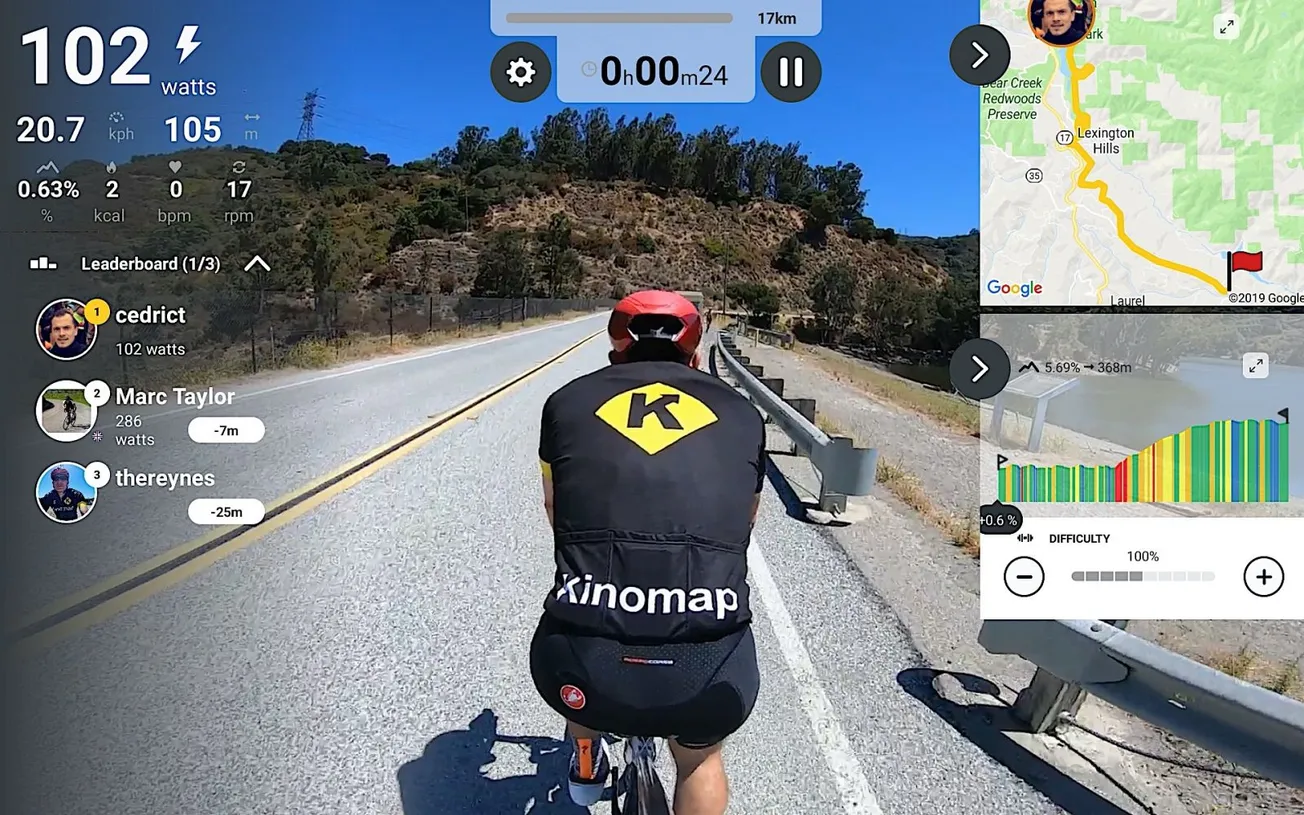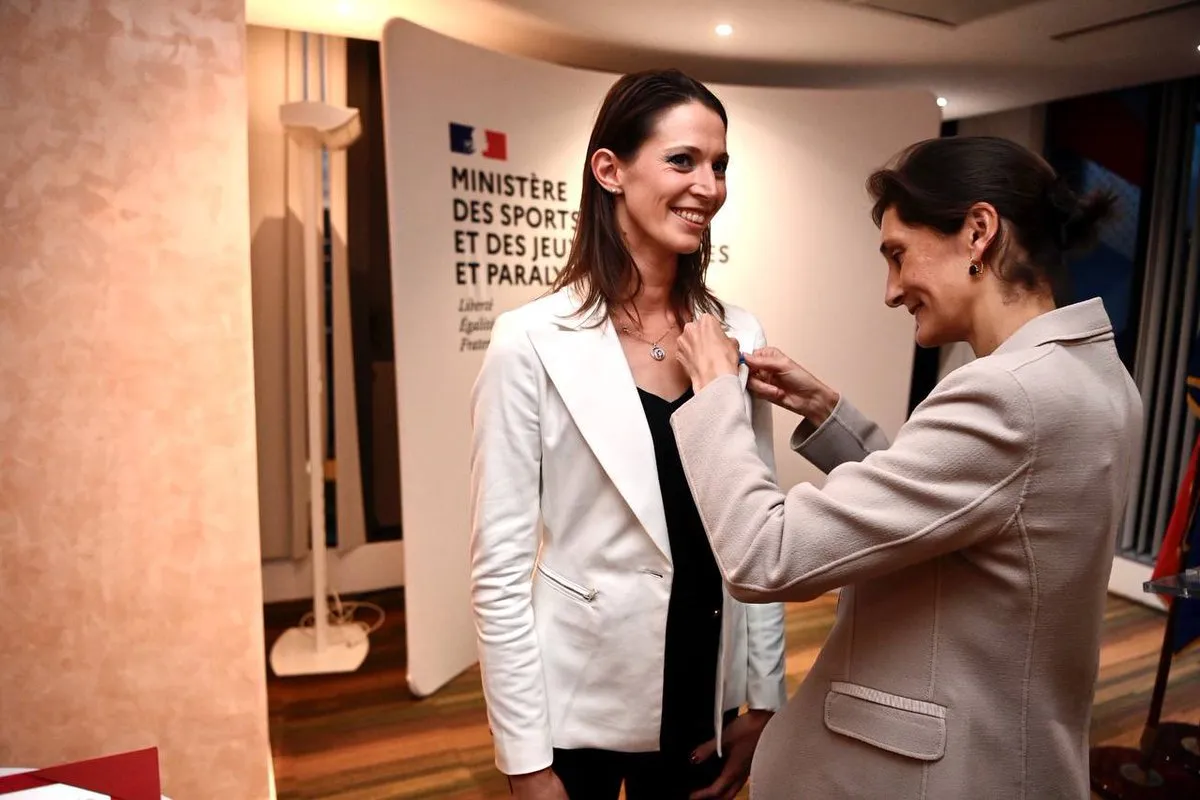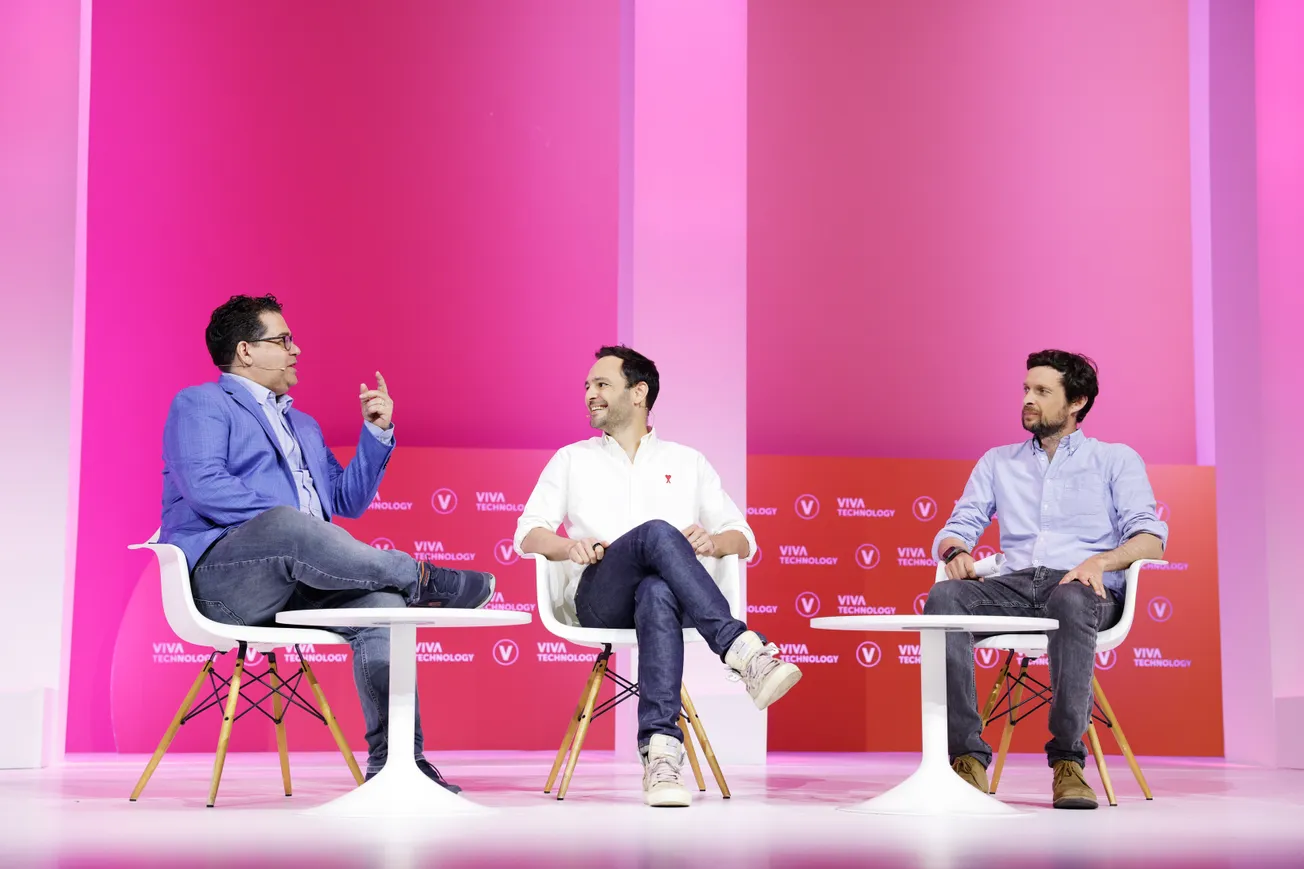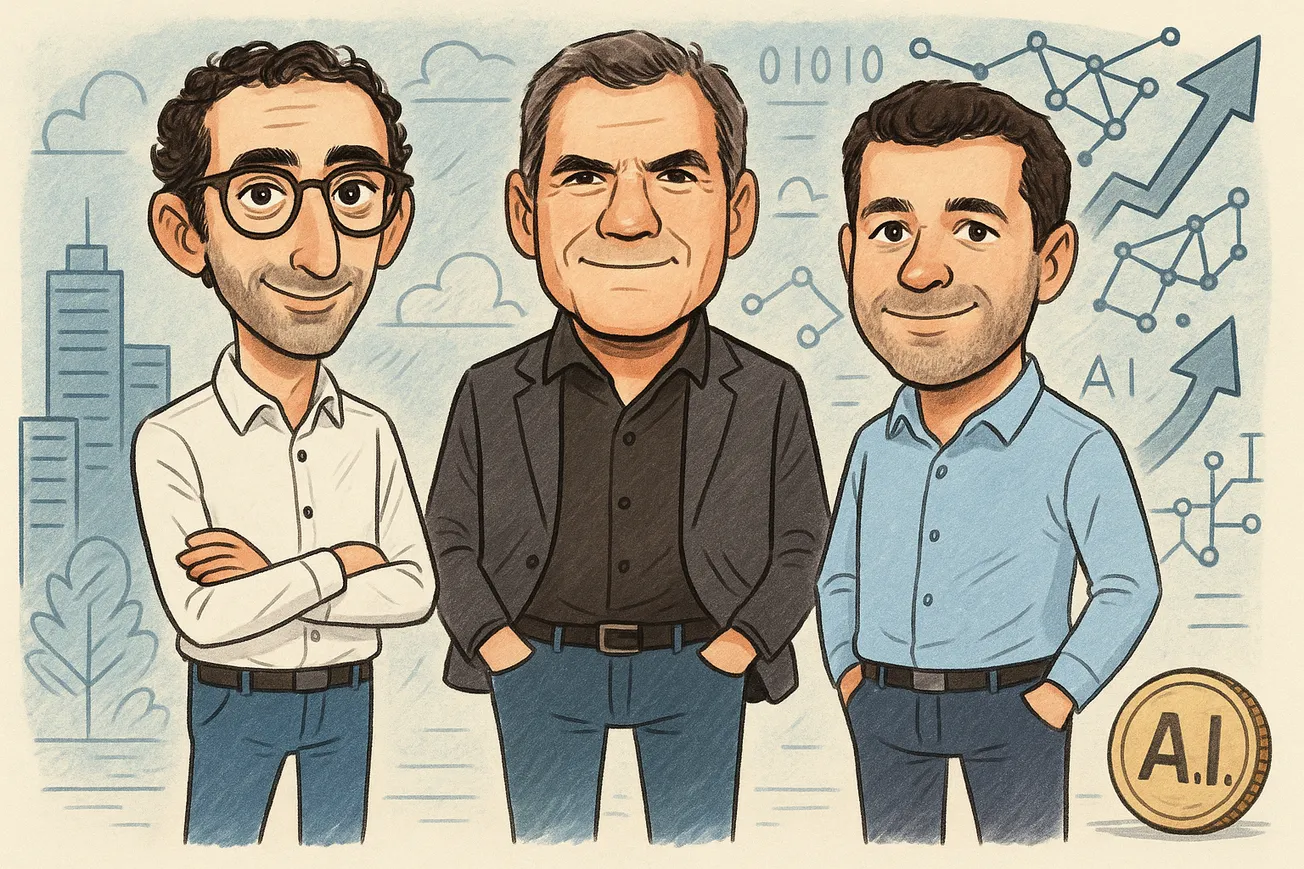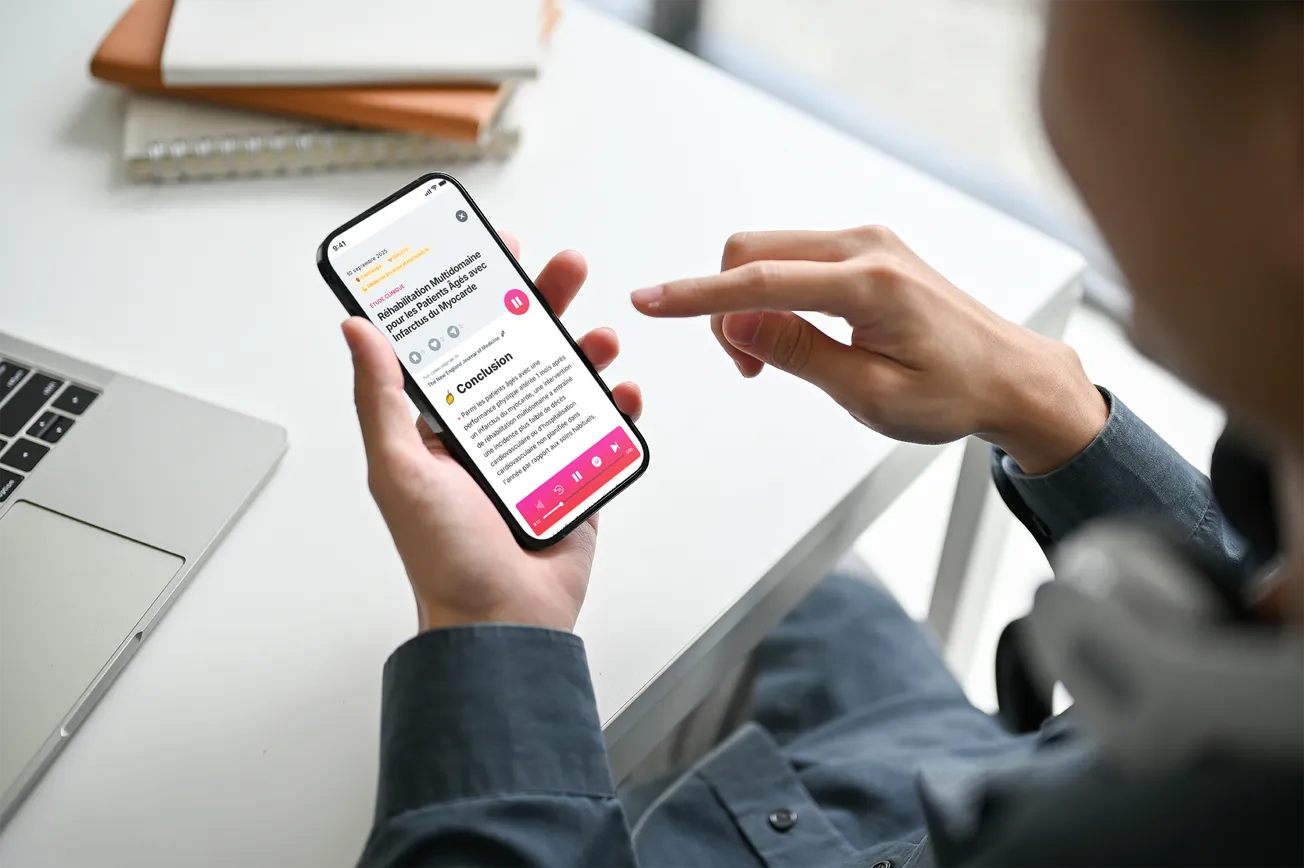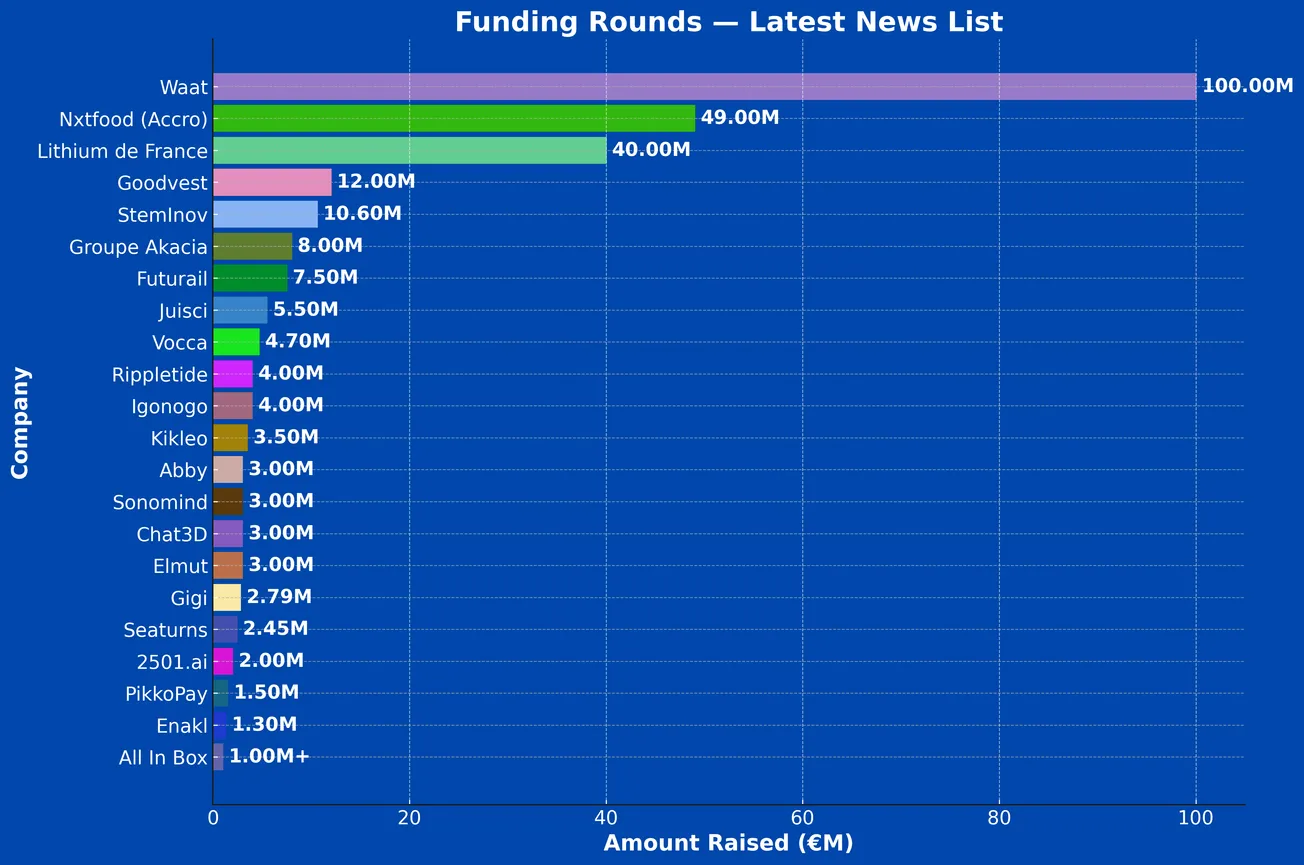Teampact Ventures announced the first closing of its “Teampact People & Planet” fund in early 2024 with €20 million raised toward a €50 million goal. The fund backs start-ups in the Seed and Series A stages, with checks ranging from €750,000 to €1 million.
Five investments have already been made. The fund targets mainly European start-ups, mainly based in France, but also British start-ups.
The fund is the brainchild of Benjamin Kayser, 40, one of France’s most celebrated rugby players. His idea: What if top athletes put their money and skills at the service of entrepreneurs working in the fields of climate change and health?
Kayser co-founded the fund with Basile Agay and Romain Vidal. This first fund has attracted leading athletes to be LPs, such as Raphaël Varane, Nikola Karabatic, Aurélien Tchouaméni, and Ciryl Gane. Other LPs include Jean-Charles Samuelian, co-founder of Alan; Dominique Vidal, former CEO of Yahoo Europe; Mathieu Chabran, co-founder of Tikehau Capital; and Olivier Duha, co-founder of Webhelp.
At the Sports Definition conference in June, Kayser explained his motivation for connecting the worlds of athletes and entrepreneurs. The following is a translated and slightly edited transcript of his remarks:
I'm a professional rugby player. I played for 16 years in France and abroad. But I've always been fascinated by entrepreneurship because, for me, entrepreneurs are the athletes of real life.
I've always seen similarities in resilience, drive, mindset, and the mental capacity to rise above adversity and overcome all the challenges that lie ahead. And yet, these worlds talk to each other very little. So today, we're talking about sports. We're talking about the values of sport. We're talking about the health benefits of sport. And of course, we're talking about innovation in sport.
But I decided to go one step further and create an investment structure called Teampact Ventures, which takes the best from top-level sports to boost the human capital of positive innovation. We invest in climate and health. Our starting point was a simple observation: 60% of the reasons why innovative start-ups unfortunately go bust from series A to series B are people problems.
It's founding teams that implode. It's founders who don't survive entrepreneurship.
Of course, adversity will come. It's an obligation when you're trying to create something that doesn't exist. And so, we decided to take the best from sports. When it comes to individual and collective performance, sports are a sector that has made mastering individual and collective performance its hobby. We want to harness the catalytic power of sports to boost positive innovation, in the belief that innovation must play a major role in the challenges facing our world, particularly in terms of climate and health.
So, we have created two areas of expertise.
Performance Lessons From Sports
If people's performance is so important, we have to give them a score in our due diligence. Due diligence is the study of a company before deciding whether or not to invest. We do what everyone else does: we look at the founding team, the market, the sector, the projections. But in the end, we open the hood to see the state of the engine, to see if the startup has the people capacity to carry out its mission. And this scoring is obviously very data-driven.
It's both quantitative and qualitative data. With quantitative data, we'll be able to look at turnover, absenteeism rates, and NPS employee satisfaction. As for qualitative data, we'll be conducting interviews with the founding teams, founders, and managers, but also with employees. There are still very few investment funds that actually come to see what's going on inside, in the reactor's core. We question the founding teams and measure their coachability, strategic flexibility, and narcissism.
It's not bad to have a little ego, but too much is complicated. And so we're going to score all this and it compliments our due diligence and pre-investment decision.
But post-investment, if I tell you to take the best from sport and bring it to the companies in our positive innovation portfolio, you still need to know where you're starting from. We're not starting from scratch.
In fact, this scoring is a people performance audit that enables us to analyze the data. Is it a lack of complementarity, psychological security, trust, and pride in belonging to the teams? We can detect all these factors and ultimately set up a support program called Boost, which is my responsibility at Teampact. To give you an example, we not only get top-level athletes to invest in us, but we also get them to support us.
We're lucky enough to be associated with Nicolas Karabatic, Gaël Ficou, Yannick Nyanga, Thierry Omeyer, and many others who are going to invest in these companies, but also spend time mentoring the founding teams. When Nicolas Karabatic invests in large-scale reforestation with Morpho, for example, he spends half a day every 6 weeks with Morpho's founders to talk about resisting pressure, sustaining performance, discipline, and feedback.
How do you become the French athlete who has managed to win a title every year for 21 years of his career? In the end, it's discipline, it's techniques, it's best practices. He'll help them with leadership, drive, and all the techniques I've been talking about for a while.
In our investment structure, we began by doing club deals, by doing SPVs. We've done 14 in France and abroad. We've deployed €12 million, and finally, we decided to set up another vehicle which is an investment fund for which we started fundraising last September we're very proud to have been able to do our first closing last February and we've already made the first six investments of the fund.
We're continuing to fundraise until the end of the year. These two investment techniques enable us to react quickly, to take maximum stakes with a high level of risk thanks to the funds, but also to keep an open community of investors who have an appetite for these direct investments in SPVs.
Above all, we're extremely proud to have been able to generate a collective team of athletes who all had a desire to make a positive impact on the world. I didn't create in them the desire to have a significantly positive impact on the planet. On the other hand, we made them understand that investing their time and money in this innovation with us was one of the ways to do it. And so, if you can find another way, other than sport, to finally generate a movement, create a dynamic, and unite the strengths of everyone better than sport in the service of positive innovation, I'd love to hear from you.
We're extremely proud of where we are. Our ambitions are commensurate with the quality of our private investors, who are entrepreneurs and investors, but also with our founders, who are exceptional, and with the athletes who have placed their trust in us. If I give you another example, perhaps it will speak for itself, on why we decided to launch the fund.
A year ago, we invested in a company making insect protein. Except that this deal wasn't for us. This deal wasn't part of our deal flow. It wasn't on our map. But we were brought in by another fund, which told us that our people performance scoring would interest them if we could pass it on to this company for their opinion. This company had undergone a change, a strategic pivot that was brilliant but which had not been digested at all internally. The company had gone from producing insect proteins to selling their technology to insect protein producers.
To cut a long story short, insect protein to date has a production margin of error of around 30% in terms of the number of insects per tank. Thanks to their technology, and their machine, they can reduce this margin of error to 1%. So the sales potential was there. They had to create a sales force from scratch, and 50% of the company was made up of entomologists.
How do I know that? Because we went a long way in this due diligence and we took this qualitative data where we were going to talk to employees. And I spoke to entomologists, white coats, and insect scientists, who said they didn't really like talking to people. For a sales team, it's complicated to be able to talk to people. Secondly, I was able to talk to engineers who had been recruited to build insect farms worth tens of millions of euros all over the world.
In the end, their job was to build a model in the showroom of the start-up's offices under London Bridge. This meant that the engineers had more work to do, and were therefore leaving a bit of a mark on the company in terms of culture and the value of their time. So the big funds that brought us this deal, fell head over heels when we arrived and said, listen, this company is exceptional, the technology is exceptional, the founders are exceptional, but there's a sales team that isn't worth a rock. And some of your engineers, or at least some of your employees, are at a loss, so they're casting aspersions on what you're creating.
We set up a support system. Above all, we identified the problems before they happened. Symbolically, when you realize you're thirsty, you've already lost 40% of your energy resources.
I'm giving you this example to try and illustrate what can be seen in scoring per people, but also - and this is often the question for investment funds - how do you access these best deals? It's the user experience.
So, it's the experience of the founders who, ultimately, by word of mouth, will recommend us to other founders. And we're lucky in France and in Europe, but particularly in France, to have a generation of talents who want to use their individual excellence to create this positive innovation. But also, this famous fund, which had said it just wanted our opinion, is now sending us its entire deal flow. So we benefit from the deal flow of others in co-investment, we benefit from the deal flow directly from founders who call on us through this support.
We're not consultants. We don't provide services for the benefit of our clients. But we do consider that this support, this added value, gives us access to the best deals. It enables us to boost the deals in which we invest, and it even enables us to become the ideal co-investor so that we can benefit from the deal flow of others.
The main idea is to say to ourselves, sportsmen and women, we can no doubt put them in straitjackets, we can build walls around them. But I think we're absolutely at the very beginning of an adventure in innovation, in terms of the extent to which athletes, or sports in general, can have an impact on the fields in which they are involved. Athletes have a lot more to bring to the table than just influence or, potentially, technical expertise.
Athletes are competitive beasts who know how to set goals, how to rise above adversity, and how to have the individual discipline to excel. They also know how to be comfortable in the uncomfortable. This idea of being the 1% of the 1%, of having lost out all the time to people who tell you you'll never make it. It's a world in which they're comfortable. But entrepreneurs are going to get the full brunt of it, not at the age of 14-15, but probably at 25, fresh out of school, full of ideas, full of energy. So, we wanted to build bridges between these two milieus which, unfortunately, never spoke to each other until now.
The Entrepreneur And The Athlete
These famous bridges that didn't exist were symbolized by Jean-Charles Samuelian, founder of Alan, a French insurance tech company and a unicorn. I asked him to meet Nicolas Karabatic. Jean-Charles says to me, "I'd love to meet one of the most medal-winning French sportsmen in the history of French sport. But he won't be interested in what I've done.”
Now Alan, a startup that's a French unicorn, is revolutionizing the world of healthcare and employs 800 people. It's a lovely story. I asked Nicolas Karabatic if he would like to meet Jean-Charles Samuelian. “I'd love to, it's a story that fascinates me,” he said. “But I've got nothing to contribute to it.”
I didn't ask him to go and help Alan with its coders and developers. I'm asking him to sit down with one of the founders who is going to make his mark on French entrepreneurship and exchange notes, techniques, and disciplines on how we behave.
That's my point. It's how sporting excellence meets entrepreneurial excellence. How they manage to join forces to create a better world for us tomorrow.

